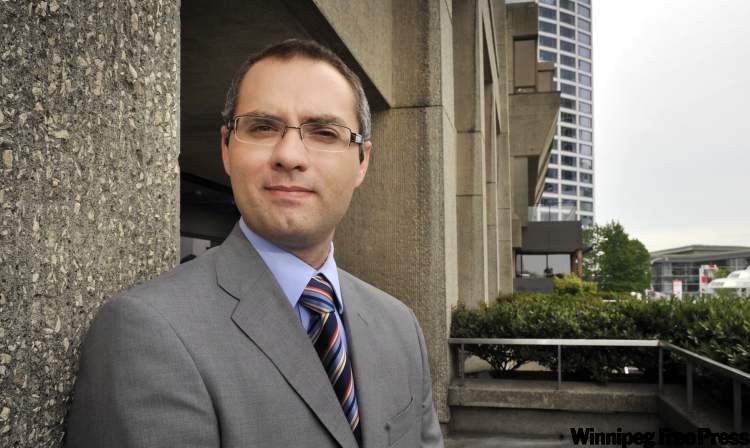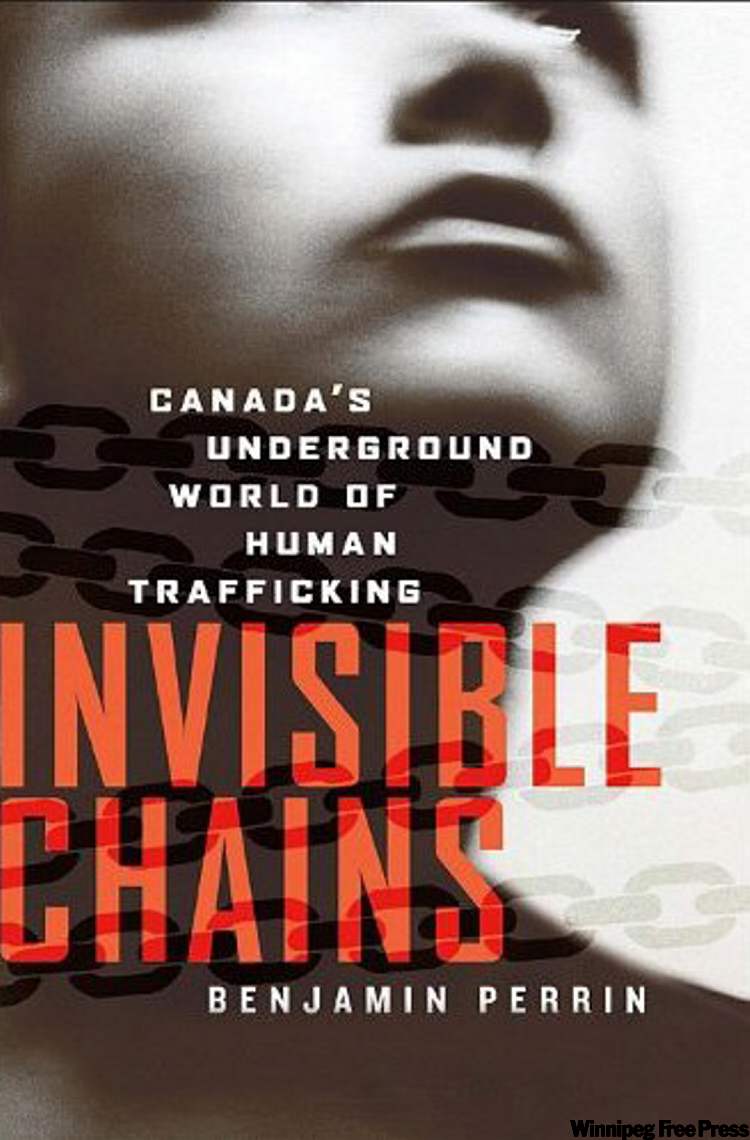Ban sex-trade ads, author tells province
Wants Manitoba to follow Ontario's lead
Advertisement
Read this article for free:
or
Already have an account? Log in here »
We need your support!
Local journalism needs your support!
As we navigate through unprecedented times, our journalists are working harder than ever to bring you the latest local updates to keep you safe and informed.
Now, more than ever, we need your support.
Starting at $15.99 plus taxes every four weeks you can access your Brandon Sun online and full access to all content as it appears on our website.
Subscribe Nowor call circulation directly at (204) 727-0527.
Your pledge helps to ensure we provide the news that matters most to your community!
To continue reading, please subscribe:
Add Brandon Sun access to your Winnipeg Free Press subscription for only
$1 for the first 4 weeks*
*$1 will be added to your next bill. After your 4 weeks access is complete your rate will increase by $4.99 a X percent off the regular rate.
Read unlimited articles for free today:
or
Already have an account? Log in here »
Hey there, time traveller!
This article was published 14/10/2010 (5451 days ago), so information in it may no longer be current.
A researcher who’s written a book about human trafficking in Canada is calling on Manitoba’s attorney general to ban Craigslist from advertising erotic services.
“It’s the medium of choice for organized crime to sell women in the sex trade,” said Benjamin Perrin, who’s in Winnipeg tonight promoting his book Invisible Chains: Canada’s Underground World of Human Trafficking.
“The Ontario government Tuesday heeded calls to make Craigslist shut down its online flesh market,” Perrin said in an interview. “We’re asking the attorney general of Manitoba to make the same demand.”

Perrin, an assistant professor at the University of British Columbia’s faculty of law has trawled the murky depths of sexual exploitation from Cambodia to Canada.
In Manitoba, he found too many heart-wrenching examples of young aboriginal people being used, abused and left for dead, while relatives, social workers and police struggle to stop it.
He cited the case of Fonessa Bruyere who was found murdered on the outskirts of Winnipeg three years ago. Perrin writes that Fonessa was first sexually exploited at age 11. She became addicted to crack and meth.
At age 12, she was turned away from a residential youth shelter because all the beds were full. She ended up being sold for sex to support her addiction to the drugs that numb victims’ physical and mental suffering, lower their inhibitions and impair judgment. Fonessa was last seen getting into a car on Selkirk Avenue before she was found dead at age 17.
Brazen traffickers will go after vulnerable girls who’ve made it to a safe place, Perrin writes. Workers at the Little Sisters safe house in Winnipeg run by Ma Mawi shared the girls’ stories with Perrin, who doesn’t interview victims for fear or re-traumatizing them, he said.
One 14-year-old girl there had been in 67 foster care placements and group homes before arriving at Little Sisters. Such kids are ripe for the picking by traffickers. The easiest way to avoid detection is to move a victim from her hometown, both to isolate her and capitalize on the lack of national co-ordination to address the problem, Perrin writes.
Crystal and Sabrina were living at Little Sisters when two “South Asian” men befriended them in 2004. The men groomed Sabrina and Crystal taking them out for dinner and to movies — then to a Saskatoon hotel room with a sex trafficker from Vancouver, Perrin writes.
Staff at Little Sisters saw them driving away in a vehicle and got the licence plate number and called police, who said they could do nothing. When the girls called from Brandon to say they were OK and going to Saskatchewan, staff contacted the RCMP who said they could do nothing. Perrin writes Crystal was plied with cocaine and alcohol in the car but police didn’t notice it when they pulled over the vehicle on the highway for some unknown reason.
In Regina, a man with a briefcase saying he was from Vancouver joined them. They drove another 250 kilometres north to Saskatoon, picked up a sex trade worker on the street and went to a hotel. Crystal passed out and Sabrina was frightened to see her hosts engaging in sexual activity.

She went into the bathroom and called Little Sisters on her cellphone. She had little knowledge of Canada, and had never heard of the city she was in. “All she could repeat over the phone (to her worker) was ‘Kakatoon! Kakatoon!’ “
She was asked to look for something in the hotel bathroom with writing on it. The girl, who couldn’t read, recited the letters to her worker: Howard Johnson. Saskatoon police were notified.
The entire group was arrested on drug charges, the girls were held till their worker arrived from Winnipeg. By then, the would-be recruiters and human traffickers were released, stunning the workers from Winnipeg that the police let them get away.
“There was a lot of finger-pointing after this case,” Perrin said in an interview. Child welfare and police agencies weren’t able to prevent or stop it. “There’s nothing to prevent this from happening again.”
carol.sanders@freepress.mb.ca
